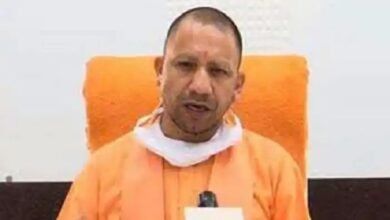[ad_1]
The proposed Bill advocating the reservation of Assembly seats for Kashmiri Pandits on a nomination basis through the office of the lieutenant governor has sparked contentious debates. While ostensibly aimed at safeguarding the political rights of a community in exile since 1990, this legislative move is being criticised for its potential to undermine rather than empower the Kashmiri Pandits politically. The Bill raises ethical implications and questions about its alignment with fundamental constitutional values. Rather than fostering true empowerment, it risks perpetuating a façade of inclusion while failing to bridge the chasm created by the traumatic events of 1990.
Kashmiri Pandits have endured an extensive exile since 1990, marked by a forced departure from their homeland, leaving behind a rich cultural heritage and centuries-old roots. The need to safeguard their rights is unquestionable. But this imperative must go beyond token representation. The harrowing events of 1990 fractured the social fabric, creating rifts that demand careful healing through genuine, inclusive political measures. The proposed Bill, however, introduces concerns about achieving this delicate balance between preserving political rights and fostering reconciliation.
The crux of the Bill is in the nomination of Assembly representatives through the office of the Lieutenant-Governor (L-G). While purportedly a step towards empowering the Kashmiri Pandit community politically, this method raises profound concerns. Nomination, as outlined in the Bill, risks conferring a superficial sense of empowerment while distancing the Kashmiri Pandits from their roots and severing crucial connections. Genuine political representation should ideally catalyse the broader return of Kashmiri Pandits, achievable solely through elected representatives who earn the trust and confidence of diverse societal segments through democratic elections.
Promoting favouritism
The Bill vests the L-G with unprecedented authority to handpick nominees, irrespective of their acceptability on the ground or their nuanced understanding of the prevailing realities. This discretionary power, rather than ensuring authentic representation, raises alarming prospects of quid pro quo arrangements overshadowing the genuine welfare and interests of the Kashmiri Pandit community. By granting unbridled discretion to select nominees, the Bill risks perpetuating a system where political favouritism and external influences overshadow the community’s true aspirations and needs.
Past nominations to the Assembly in the former state of Jammu and Kashmir were orchestrated by popularly elected governments, lending these appointments a degree of legitimacy and resonance within the community. The current Bill’s provision for LG-led nominations represents a departure from this norm. This distinction is pivotal; former nominations held credibility owing to their origins within elected governments, whereas the present proposal risks diluting the authenticity and credibility of the chosen representatives. The shift from elected government-led nominations to LG-driven appointments raises poignant questions about the legitimacy and acceptability of the nominated members, significantly impacting their effectiveness and resonance with the populace.
Elected vs Nominated Kashmiri Pandit leaders
A comparative analysis of the track records of elected versus nominated members within the Kashmiri Pandit community reveals telling disparities. Elected representatives like Pyare Lal Handoo, Makhan Lal Fotedar, Raman Mattoo, and Kak Sahab garnered widespread recognition and respect, standing as pillars of community representation. In contrast, the BJP’s nominated members to the Upper House in 2014 remain relatively obscure, their presence failing to resonate within the community or address grassroots issues. This disparity in the efficacy and impact of elected versus nominated members underscores the inherent inadequacies of the proposed Bill in fostering genuine representation and community welfare.
The Bill’s introduction appears to be part of a larger political strategy rather than a sincere effort to empower the Kashmiri Pandit community. Within the intricate socio-political landscape of Jammu and Kashmir, the BJP faces a dilemma: In Jammu, dominated by the Dogra community, and in Kashmir, where the Muslim majority holds sway, the Kashmiri Pandits seemingly do not align with the BJP’s political interests. Despite this, the BJP seeks to perpetuate the Kashmiri Pandit issue as a political card without genuinely integrating their aspirations. By introducing a representation module that echoes a semblance of empowerment, the party aims to maintain the community’s allegiance without offering substantial solutions or acknowledging their genuine concerns.
True empowerment for the Kashmiri Pandit community hinges on fostering genuine representation rather than nominal gestures. A more effective approach would involve reserving constituencies where Kashmiri Pandits can actively engage in grassroots democracy. Door-to-door campaigns and meaningful interactions would not only address prevailing fears about security but also instil a sense of community and belonging. This approach, founded on democratic principles, has the potential to bridge the divide between Kashmiri Pandits and Kashmiri Muslims. Engaging with people through democratic means could pave the way for a more inclusive and participatory political landscape, fostering reconciliation and paving the way for the community’s larger return to their homeland.
Diluting a category
The nomination process, contrary to what the Union Home Minister stated on the floor of the House, is for those who suffered relocation and humiliation, signalling that the Kashmiri migrant community extends beyond just Kashmiri Pandits. It encompasses Kashmiri migrants from diverse religious backgrounds, including Muslims, Sikhs, and Pandits. However, the flexibility in the definition of migrants sparks concerns and proves that the BJP’s assurances about addressing the concerns of the Kashmiri Pandit community regarding political reservation are mere lip service. In J&K, as per government data, there are migrants from the Muslim majority community and individuals from regions like Doda Rajouri Poonch who are registered as migrants. This scenario might limit the ability of Kashmiri Pandits to contest their nomination as mandated by the Bill. The BJP government faces a dilemma as providing reservation based on religious grounds could pose constitutional challenges, opening a Pandora’s box of complexities.
The Bill’s potential to disempower rather than empower the community politically is evident, casting shadows on its alignment with ethical principles and constitutional values. A more thoughtful and democratic approach is imperative to safeguard the political rights of the Kashmiri Pandits, serving not as a superficial representation but as a bridge to heal the wounds of the past. The journey toward genuine empowerment necessitates embracing democratic norms, fostering meaningful engagement, and creating pathways that bridge communities rather than perpetuating divisions. Only through such inclusive measures can political representation truly catalyse reconciliation.
The writer is General Secretary (Org) Youth, and Spokesperson, PDP
[ad_2]





